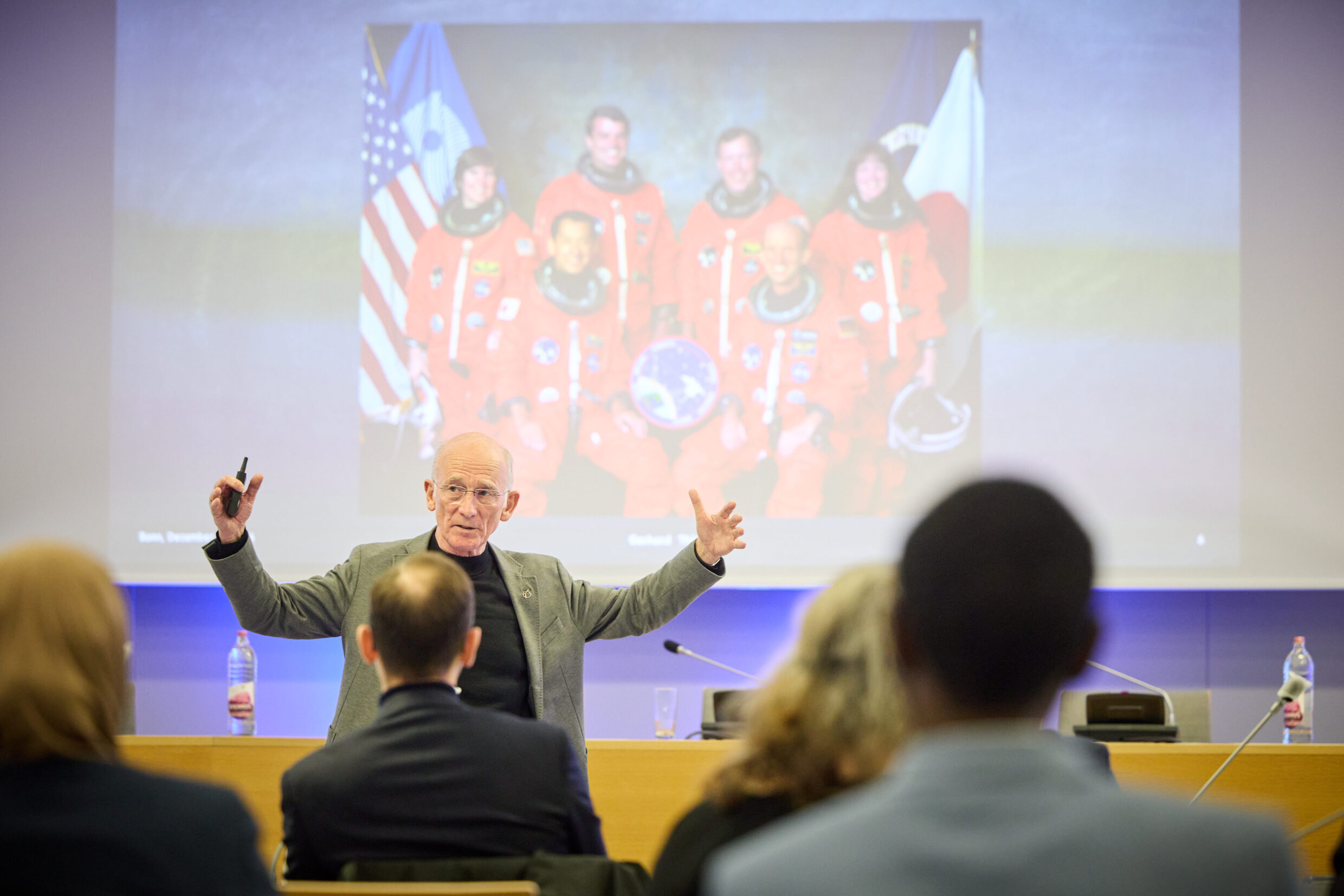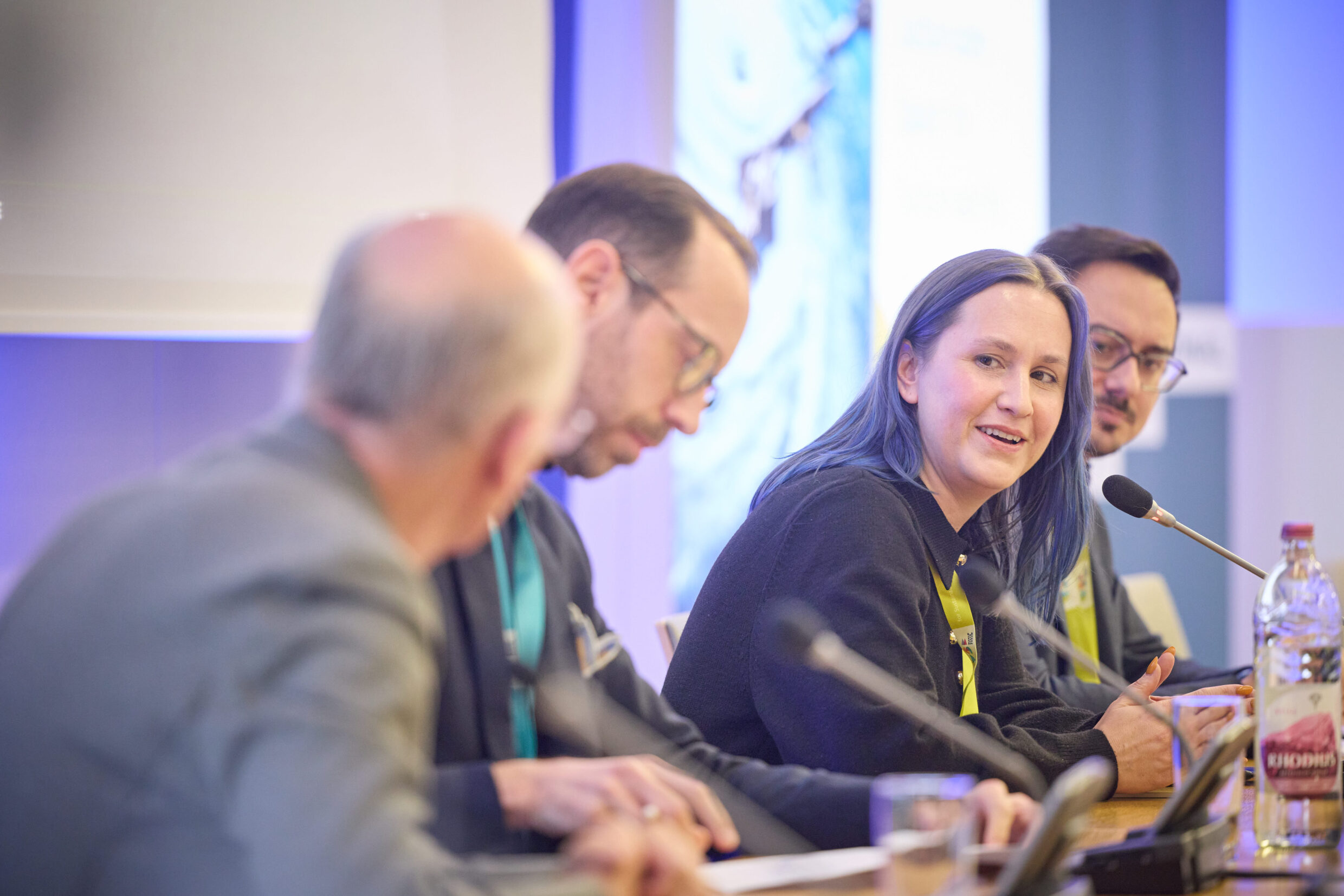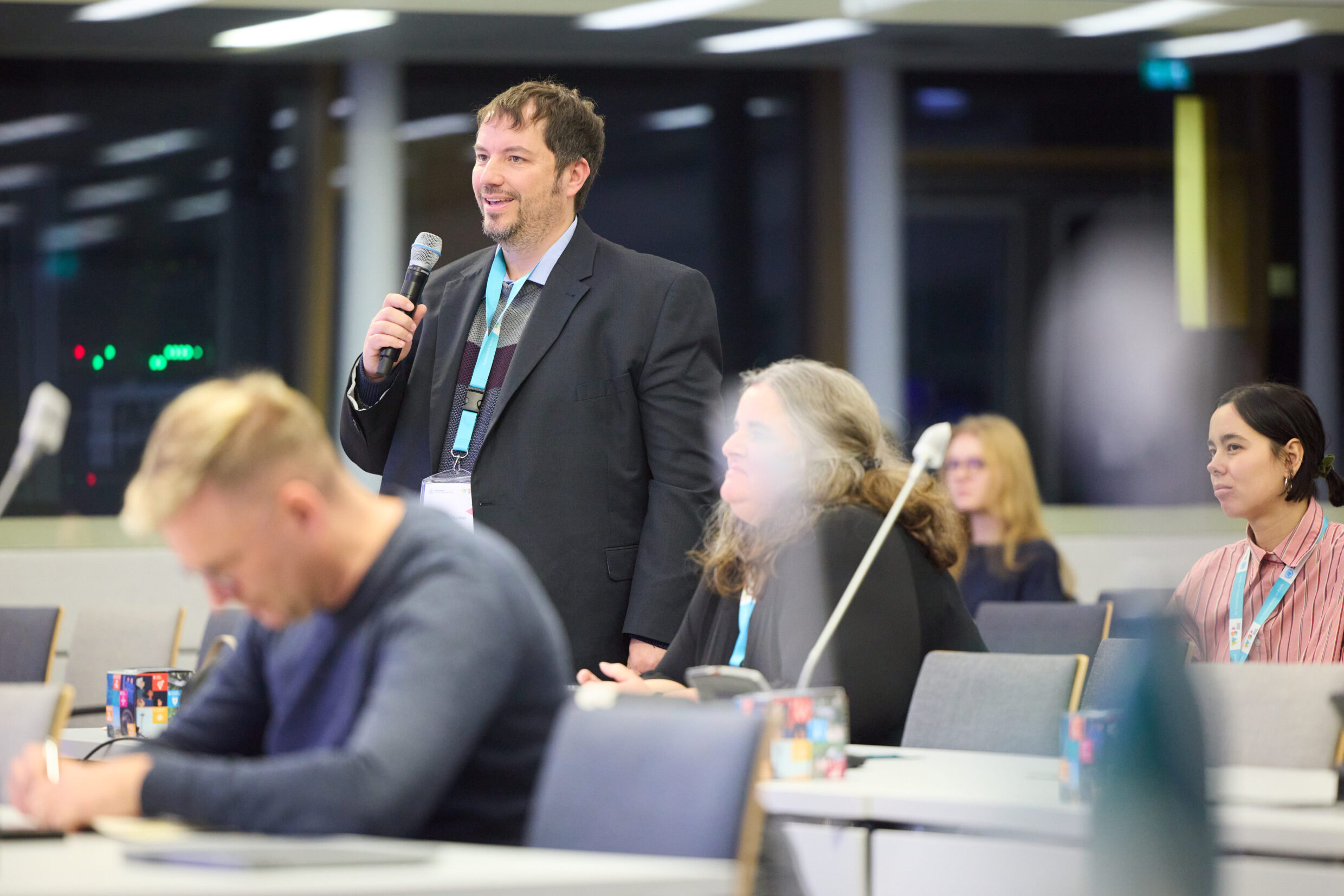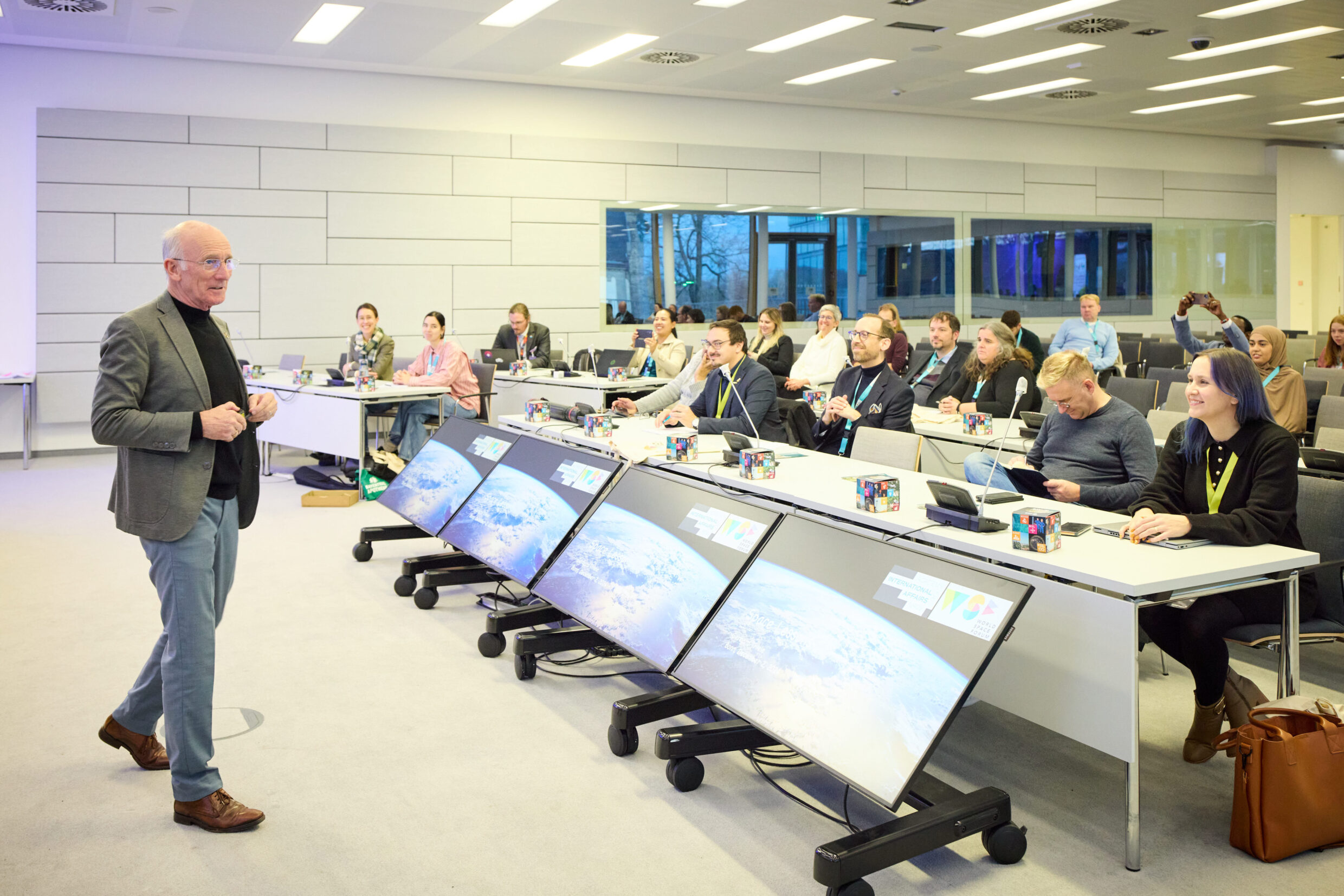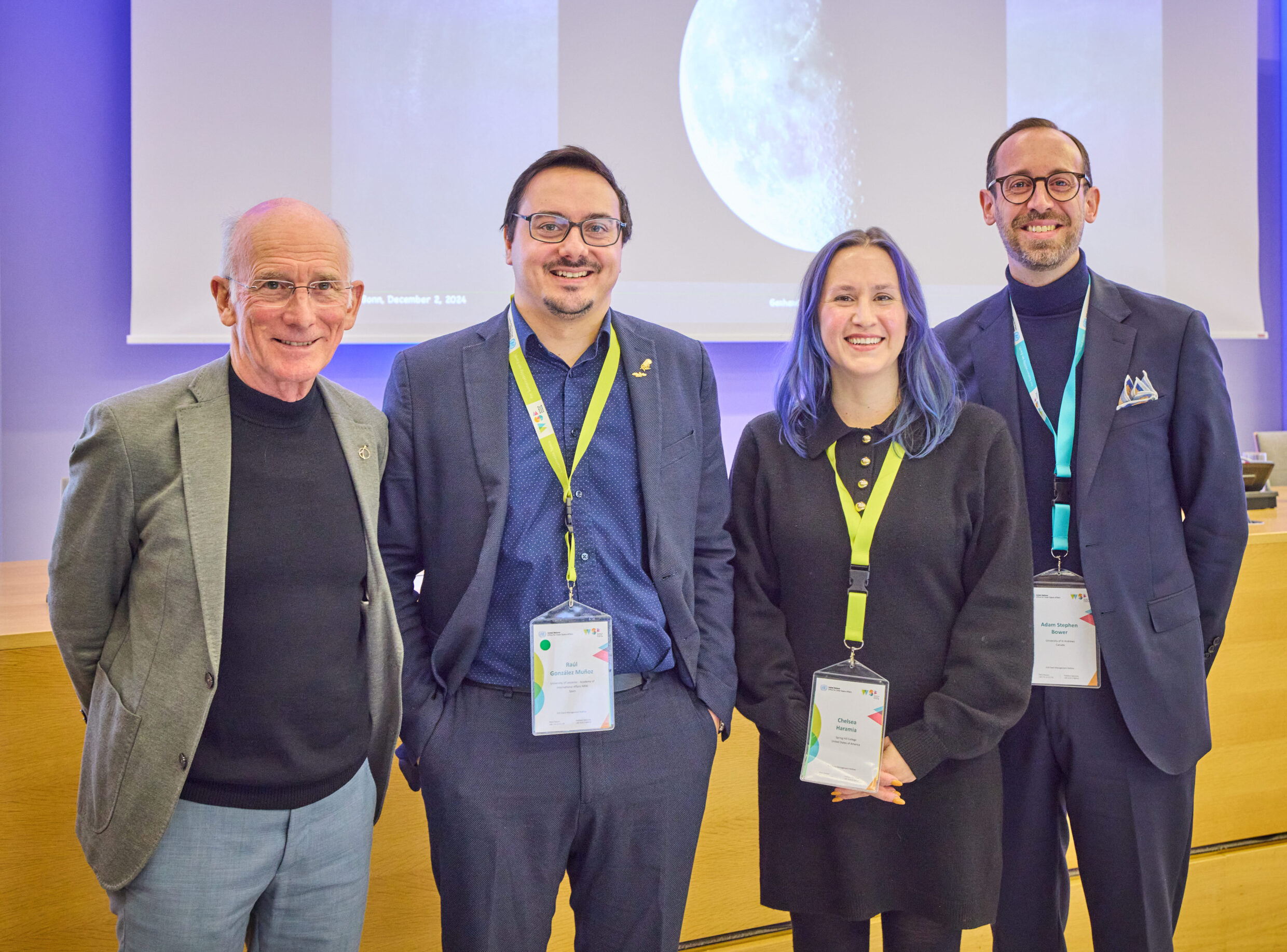Im Rahmen des World Space Forum der Vereinten Nationen in Bonn (3.-6. Dezember 2024) organisierte der AIA NRW am 2. Dezember 2024 ein Side Event mit dem Titel „Responsibility in Space for Sustainability on Earth“. In seiner Grundsatzrede berichtete der ESA-Astronaut und Astrophysiker Gerhard Thiele von seinen persönlichen Erfahrungen in der Raumfahrt. Er reflektierte über seine Weltraummission von 1998, bei der die Erde geografisch vermessen wurde, und betonte die zentrale Rolle der Verantwortung, wobei er insbesondere die Bedeutung von Teamarbeit und Kommunikation hervorhob, ohne die ein solch bedeutendes Unterfangen nicht möglich wäre.
„Dr. Thieles Überlegungen zur Bedeutung der Kommunikation bei der Planung und Durchführung von Weltraummissionen boten eine wertvolle Perspektive auf das Wesen von Verantwortung und verantwortungsvollem Verhalten im Weltraum“, sagte unser Fellow Adam Bower. Zusammen mit Raúl González Muñoz und Chelsea Haramia, die beide ebenfalls Mitglieder unserer Fellow-Kohorte sind und über Weltraumfragen forschen, kommentierte er Dr. Thieles Keynote. Chelsea Haramia griff das Thema der Verantwortung auf:
„Gerhard Thiele ermutigte uns alle, in Möglichkeiten zu denken. Wie viele wissen, müssen wir nicht nur überlegen, ob wir etwas tun können, sondern auch, ob wir es tun sollten. Und selbst wenn wir zu dem Schluss kommen, dass wir etwas tun sollten, folgt daraus nicht zwangsläufig, dass wir zu jeder Zeit und unter allen Umständen handeln müssen. Daher halte ich es für unerlässlich, dass wir bei der Entscheidung, ob wir handeln sollten, ernsthaft in Betracht ziehen, dass der Zeitpunkt eine Rolle spielt und dass dieselbe Handlung zu einem bestimmten Zeitpunkt zulässig sein könnte, zu einem anderen jedoch nicht.“
Im Anschluss daran fand eine lebhafte Diskussion mit dem Publikum statt, in der ein breites Spektrum an Themen erörtert wurde, darunter die Arbeit in internationalen und interkulturellen Teams, Pläne für die weitere Besiedlung von Mars und Mond sowie die grundlegende Bedeutung von Verantwortung bei der Erforschung des Weltraums.
